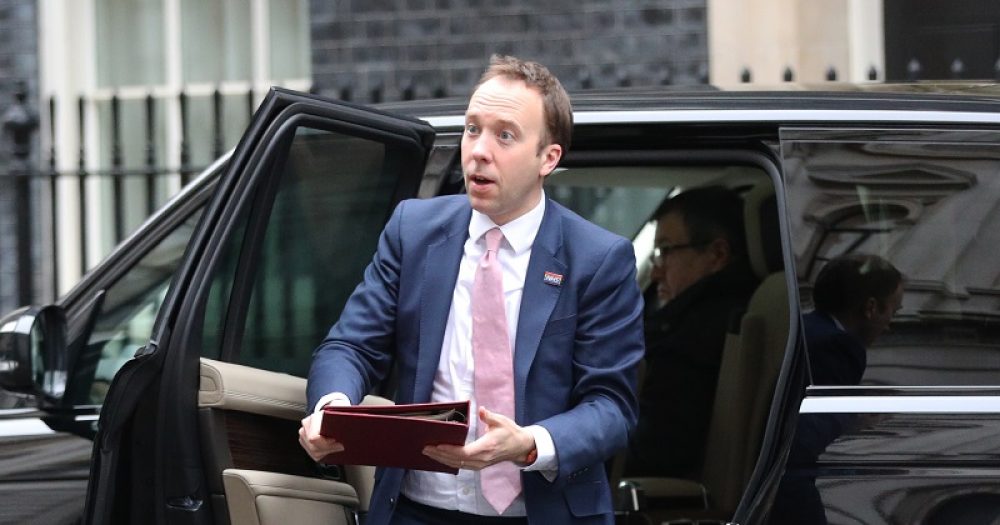Schools will have to close in Leicester from Thursday in response to a “growing outbreak” of coronavirus in the country’s first localised lockdown.
Health secretary Matt Hancock announced in the House of Commons tonight some lockdown measures were being put back in place in Leicester.
The seven day infection rate is 135 cases per 100,000 people in the area, which is three times higher than the next highest city, he said. The city accounts for 10 per cent of all positive cases in the country over the past week, he added.
Along with the closure of non-essential retail, Hancock announced schools will have to close on Thursday to all but vulnerable children and children of key workers.
He said: “Given the growing outbreak in Leicester, we cannot recommend that the easing of the national lockdown set to take place on July 4 happens in Leicester.
“Having taken clinical advice on the actions necessary and discussed them with the local team in Leicester and Leicestershire we’ve made some difficult but important decisions.
“We’ve decided that from tomorrow, non-essential retail will have to close and as children have been particularly impacted by this outbreak, schools will also need to close from Thursday, staying open for vulnerable children and children of critical workers as they did throughout.”
Relaxation of shielding measures on July 6 will also not go ahead either in Leicester.
“We recommend to people in Leicester stay at home as much as you can, and we recommend against all but essential travel to, from and within Leicester.”
The government will review whether any of the measures can be released in two weeks time, he added, and said the measures will also apply to surrounding conurbation including Oadby, Birstall and Glenfield.
Hancock added they do not “take these decisions lightly”.
But he said further measures have been put in place to tackle the outbreak. This includes mobile testing units, extra cash for Leicester and Leicestershire councils to “enhance their communications” and support for affected workplaces to implement “more stringently the covid secure guidelines”.
Speaking on BBC Breakfast this morning, Hancock said there was an “unusually high incidence” of coronavirus in children in Leicester.
He added: “We have sent in a lot of extra testing into Leicester over the last 10 days or so and one of the things we have found is that there are under-18s who have tested positive and therefore, because children can transmit the disease – even though they are highly unlikely to get ill from the disease – we think the safest thing to do is close the schools.”
However, he insisted it was still safe for children to go to school. He said: “Our recommendation to people right across the country is that if your child is in reception or Year 1 or Year 6 then you really should send them to school.
“Right across the country – including in Leicester – it is safe for your child to go to school and in the rest of the country, where the number of cases is so much lower, then it is safe for the community.
“That is why we have taken the decisions that we have on schools – it’s to protect against the transmission in Leicester.”








‘…there are under-18s who have tested positive and therefore, because children can transmit the disease… we think the safest thing to do is close the schools.’
But parents who don’t send their kids to school in September face fines. This presumably would include families worried their children could bring the virus home where there are vulnerable adults.
I appreciate it’s not ideal, but Williamson is quoted by SchoolsWeek as saying “unless there is a good reason for the absence then we will be looking at the fact that we would be imposing fines on families if they are not sending their children back”.
The scenario you set out would seem like a good reason.
The alternative is not to have the possibility of fines, which would presumably mean more pupils not attending school, including those where there is no good reason to be absent.
Damned if they do, damned if they don’t.
Mark – I agree children should be in school and effective measures should be put in place for their return. The draft guidance appear inadequate and unworkable. But that’s digressing from the point of my comment. There have been mixed messages re the potential for children transmitting the virus – can’t find the quote or which gov’t dept said it – but whoever if was said the evidence showed children were unlikely to spread covid 19. Williamson errs on the side of caution in this instance – as he should – but mixed messages are confusing and undermine trust.